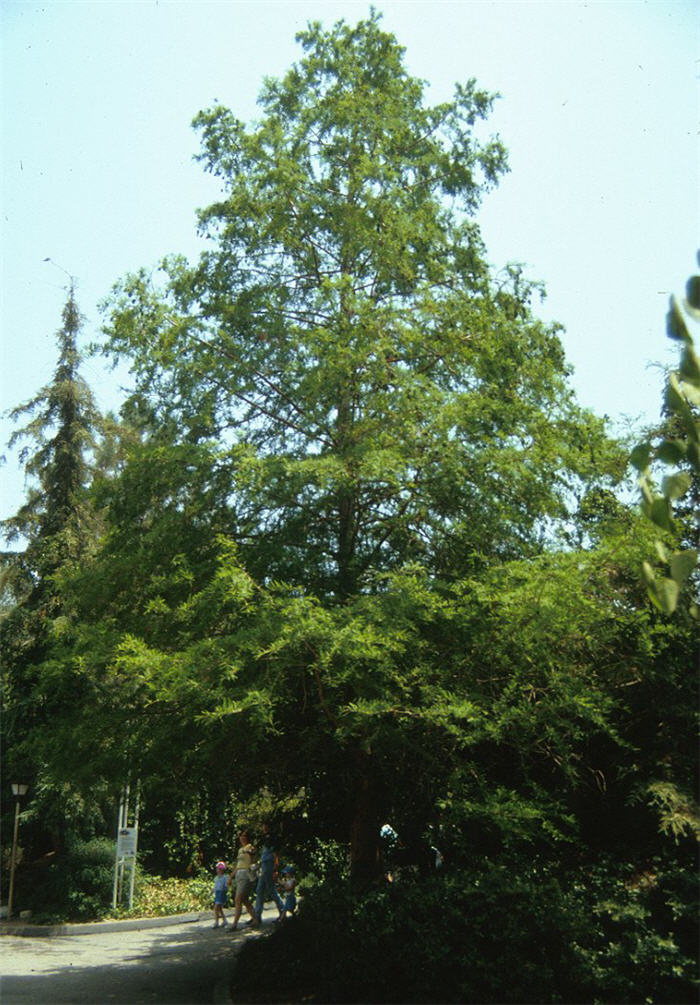| Botanical Name: Metasequoia glyptostroboides | |
| Common Name: Dawn Redwood |

-
Anatomy
-
Culture
-
Design
Plant Type
Tree, Conifer
Height Range
40-60', 60-100'
Flower Color
n/a
Flower Season
n/a
Leaf Color
Green
Bark Color
Brown, Red
Fruit Color
Brown
Fruit Season
Fall
Sun
Full
Water
Medium, High
Growth Rate
Fast, Moderate
Soil Type
Clay, Loam, Rocky
Soil Condition
Average, Rich, Well-drained, Moist
Soil pH
Acid, Neutral
Adverse Factors
n/a
Design Styles
Japanese, Meadow, Ranch, Woodland
Accenting Features
Fall Color, Silhouette, Specimen
Seasonal Interest
Spring, Summer, Fall
Location Uses
Background, Shrub Border, Lawn, Park, Street Tree
Special Uses
Screen, Mass Planting, Wind Break, Shade Tree
Attracts Wildlife
Birds
Information by: Stephanie Duer
Photographer: Linda Engstrom/Sortomme
Photographer: Linda Engstrom/Sortomme
-
Description
-
Notes
The Metasequoia is a dense, pyramidal, deciduous conifer with a central leader and when planted under the correct conditions, is a fast grower. It has an opposite branching pattern, with branchlets of long, simple needles that appear to be flattened. Foliage emerges a bright green in spring, matures to a deep green, and has a tawny pink to golden bronze fall color. Its furrowed bark is attractive, orange-brown to red-brown and peels in vertical strips. A large tree, it grows 60 to 100 feet tall and 15 to 25 feet wide.
Best grown in moist, humusy, well-drained soils in full sun. Fast growing under ideal circumstances. Tolerates wet soils. Beware of winter wind damage in cold, dry areas.